
We’re here to help! Wild Yards is a completely free website that is 100% dedicated to helping you create a wildlife-friendly, sustainable yard. Read more
WildYards is reader-supported. When you buy a product through a link on our site, we may earn a comission. Every product is independently selected by our (obsessive) editors and our reviews are unbiased and objective. Read more about our mission or our privacy policy.
Tasty in soups and salads, bok choy is a firm favorite among cabbage lovers. This easy-to-grow crop generally won’t come across many problems in your garden, but it’s still worth looking for bok choy companion plants to help keep your yield healthy.
Herbs such as sage and rosemary, and plants such as nasturtiums, marigolds, and alliums make great companion plants for your bok choy. However, there are also a few other plants and veggies you’ll need to steer clear of when planting alongside.
Why should I look for bok choy companion plants?
As a brassica, bok choy will always grow well in sunny conditions with lots of root space. But, as you may discover, it’s also at risk from multiple invasive garden pests, such as cabbage worms, whiteflies, and aphids. While it may be simple to remove these pests on sight, planting the right companions with your bok choy can help to deter munching minibeasts without the need for chemicals or pesticides.
It’s also worth growing companion plants with bok choy to welcome predatory pollinators such as wasps and hoverflies, who can take care of unwelcome pests for you. Plants that attract bees can also help keep your bok choy strong by increasing pollination during difficult growing seasons.
Bok choy can also benefit from higher yields and healthier growth overall if grown alongside specific plants and vegetables. While this brassica may benefit from companionship more than it provides, there are some cases where friendship is mutual.
A good rule of thumb is to grow bok choy within a large crop of different vegetables and herbs. It’s unlikely to attract many invasive or destructive beasts on its own, but a shrewd gardener should take care to choose neighbors that won’t harm its chances of survival.
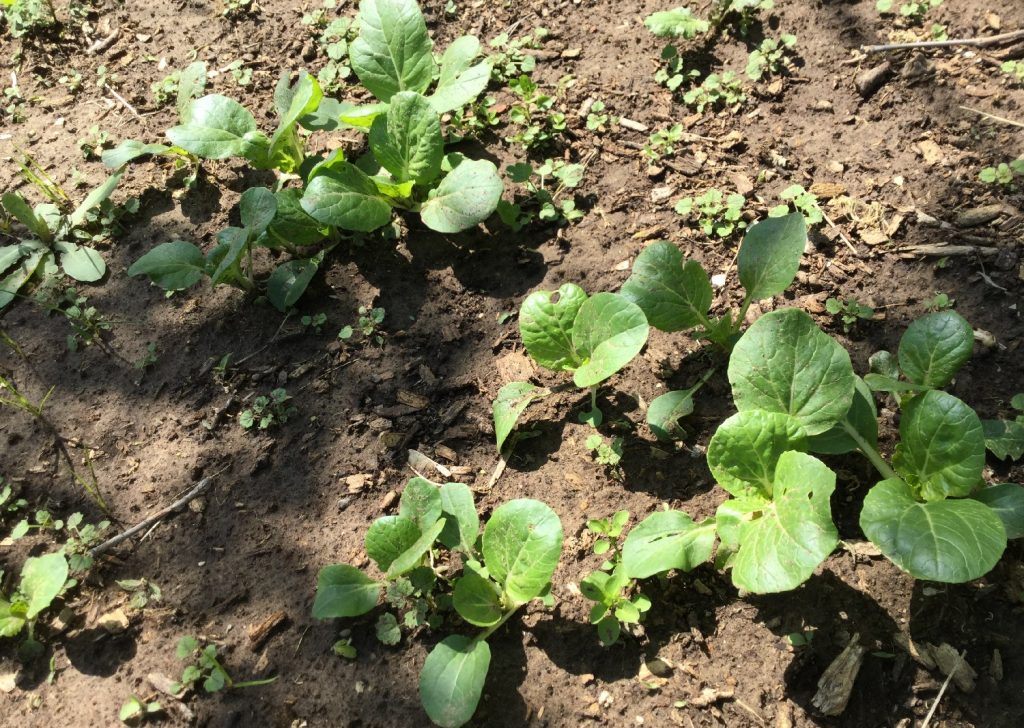
Plants you should always grow with bok choy
As a brassica, bok choy will typically benefit from supporting aromatic herbs and plants that confuse voracious insects with heady scents. This is an excellent rule to follow, but some of the following picks may surprise you further – let’s take a look.
Onions and garlic
Allium plants are superb for protecting most brassicas that don’t have a strong enough scent of their own to deter pests. Garlic and onion, in particular, will confuse most pests likely to eat through your bok choy – they’re great at deterring aphids and slugs. You’ll also find that strong-smelling alliums will stop deer from munching through your blander crops (bok choy included).
A word of warning with onion in particular – this plant demands a lot of root space and may over-compete with your bok choy for nutrients. It may be prudent to carefully space this allium some distance away so you can continue to benefit from bug deterrence.
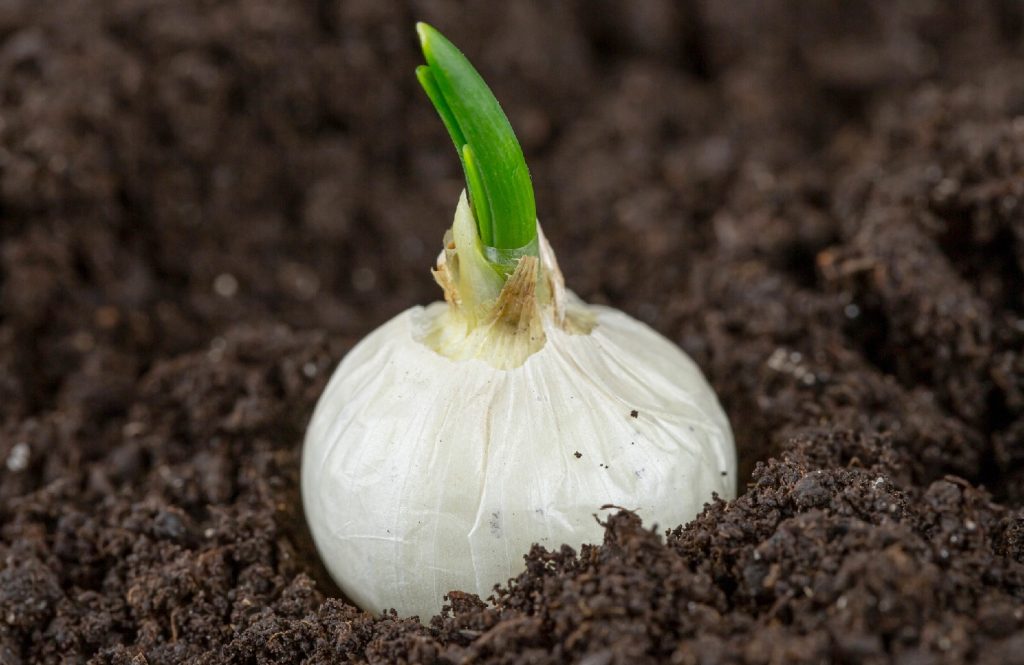
Rosemary
Rosemary’s famously strong oils will help to prevent moths and loopers from laying eggs in and around your bok choy crops and, like alliums, will also deter hungry aphids and worms.
Rosemary also works well as a companion with most alliums, as this herb can stand to benefit from strong-scented protection. This herb is also handy for improving the flavor of various crops, bok choy included.
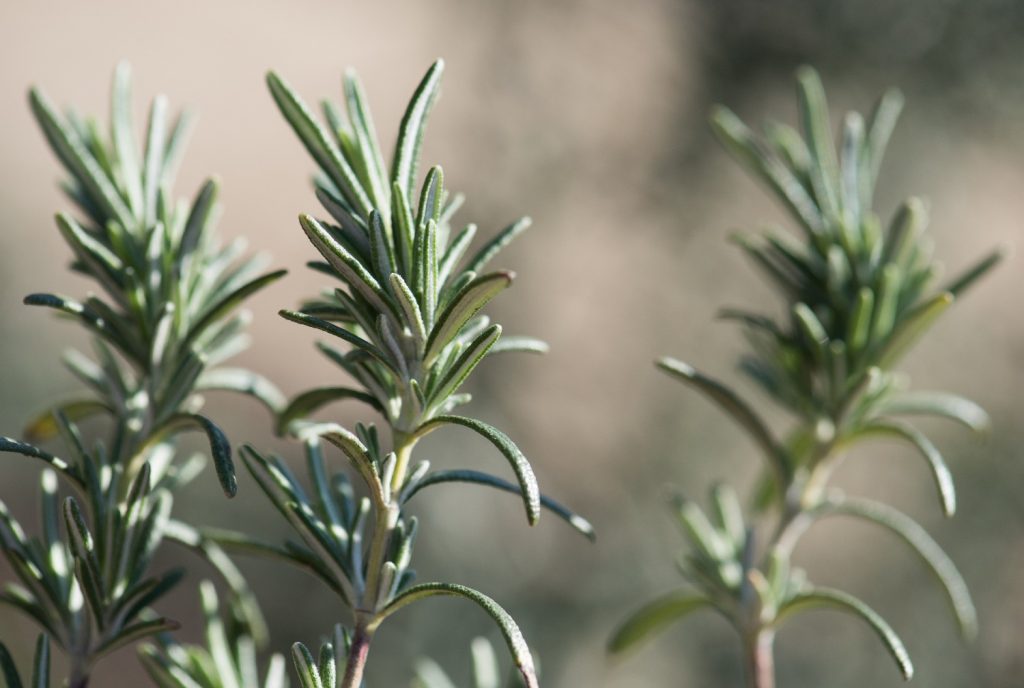
Nasturtiums
Nasturtiums are brassicas’ best friends in that they will repel common nasties such as aphids while attracting predatory insects such as hoverflies. This means if any pests make it through the first line of defense to get at your bok choy, useful predators will be waiting for them!
Nasturtiums are great ‘trap crops’ to surround bok choy with because they will effectively trap cabbage worms and aphids and stop them from getting to your sensitive brassicas. Nasturtiums can typically withstand this attention without incurring much damage.
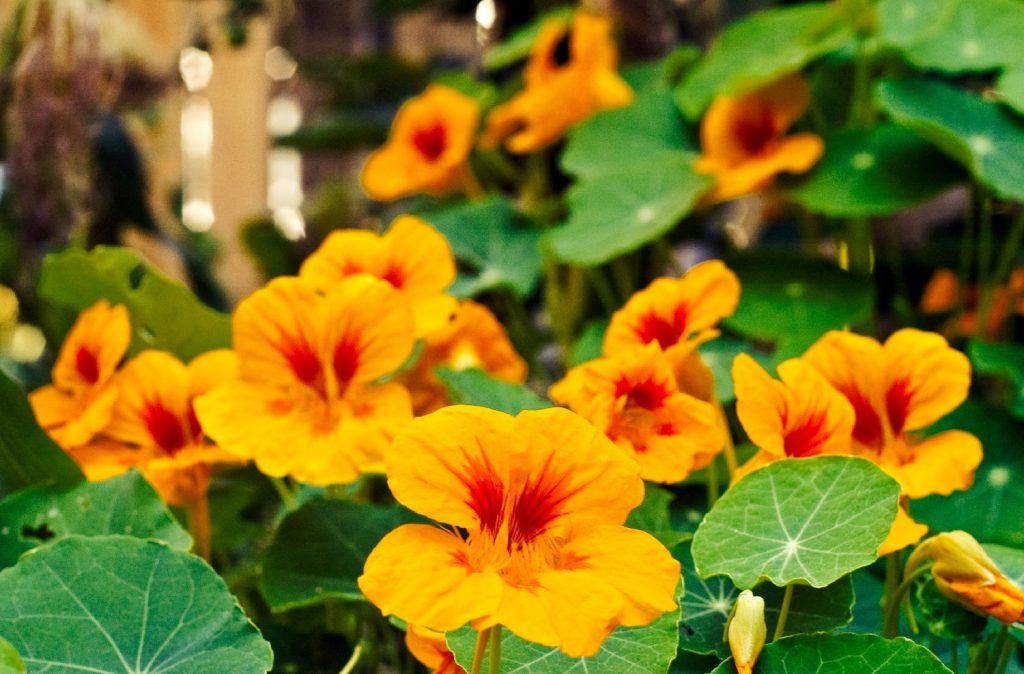
Chamomile
Chamomile is well-loved among gardeners thanks to its antifungal properties, which effectively means it can stave off common garden diseases. Your bok choy is not only protected against illness but also against invasive flies and other minibeasts – as highly invasive aphids are naturally attracted to the crop.
Chamomile is famously used as a natural insecticide and herbal tea – it’s also anti-bacterial. These natural defenses make chamomile a great companion plant for more than bok choy alone.
Sage
Sage, much like rosemary, works hard to defend your bok choy and other brassicas from aphid attacks and interest from highly destructive cabbage worms. This unproblematic herb works well in its own plot with rosemary to offer double the defense.
Thyme is a further herb that teams up well to surround bok choy – why not plant your brassica with a perimeter of herbs, and harvest them all together when the time comes?
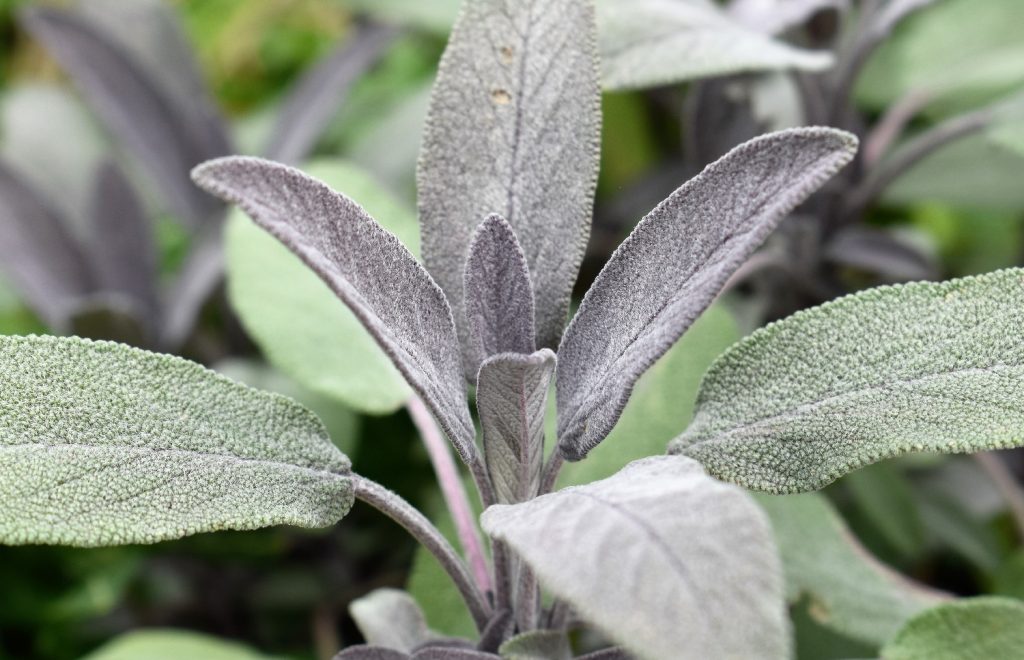
Mint
Mint is famous for its strong, fresh smell, which can easily confuse common garden pests likely to munch on your bok choy. This herb may also help to improve the flavor of your brassica crop at harvest if planted in the same soil.
That, however, is where the benefits end – as most species of mint – are likely to compete fiercely for soil space. It may be prudent to grow a clutch of mint (catmint is often a great choice) in its own pot or container just out of reach of your bok choy. This way, your brassicas will benefit from the pest defense and suffer none of the competition.
A word of caution – you should also avoid growing mint with other herbs, thanks to its competitive growing habits. While sage, thyme, and rosemary work brilliantly as a line of herbal defense for your bok choy, don’t be tempted to mix them with mint.
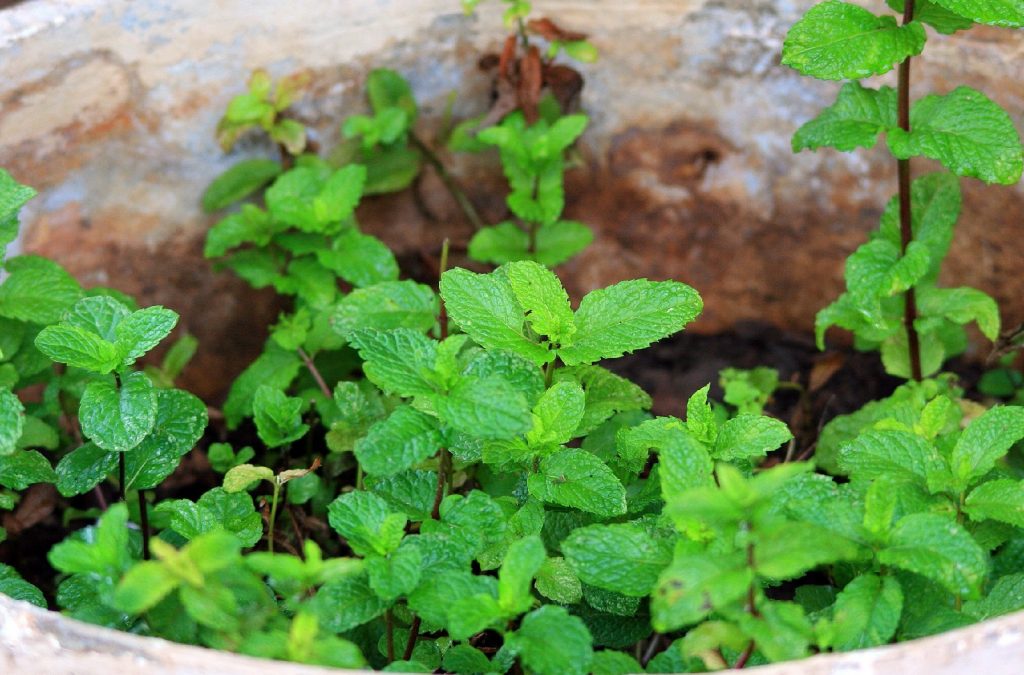
Celery
Celery, as parsley, is great for attracting insect predators such as the ladybug and parasitic wasps – meaning your bok choy will have a legion of miniature defenders ready to go. You’re also likely to attract plenty of pollinators to your crop by mixing celery and bok choy.
You should avoid growing celery and bok choy without a third line of defense – as deer are partial to eating celery and other vegetables around it. Consider deterring deer with aromatic herbs or alliums as a perimeter.
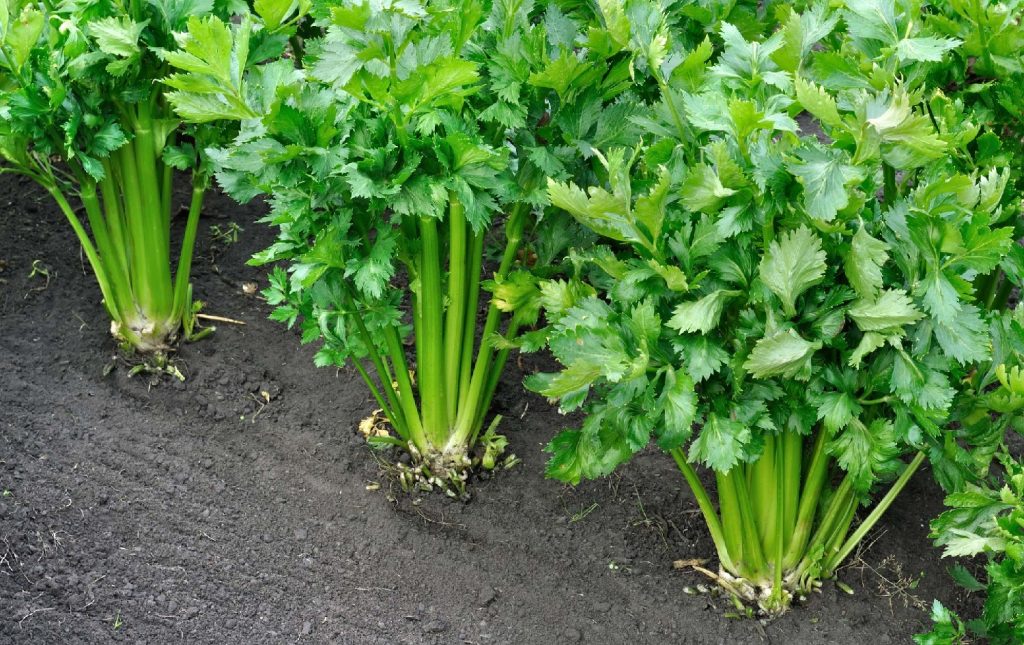
Cilantro
While cilantro may not be a great companion plant for all garden growth, it’s fantastic for helping to breed parasitic wasps. Using cilantro as a host plant, you can ensure that any bok choy growing close by always has a healthy population of wasps ready to eat cabbage worms and whiteflies.
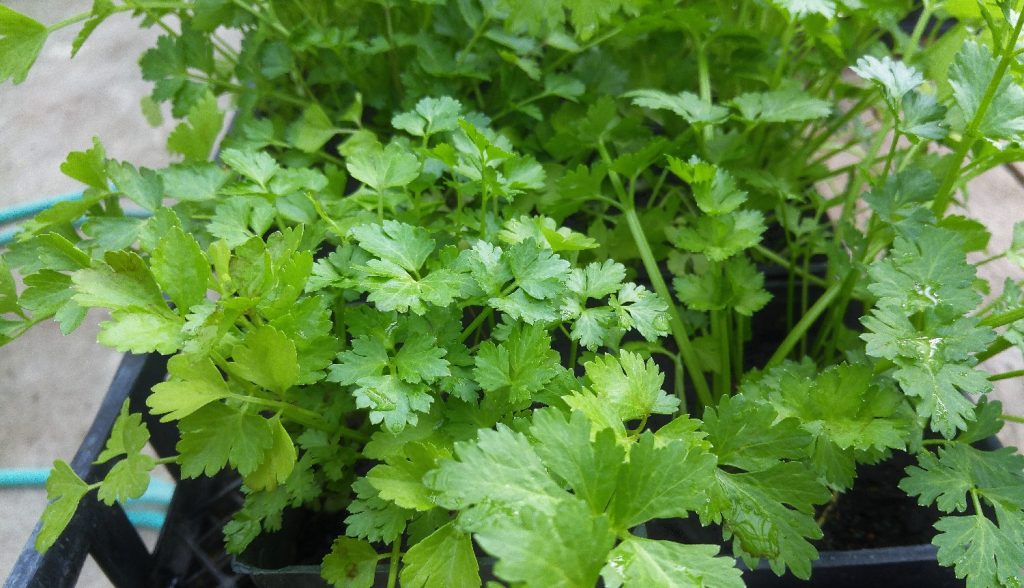
Marigolds
Marigolds are great for attracting butterflies and thus keeping your bok choy plot well-pollinated – but they’re also ideal for staving off whiteflies, aphids, and slugs.
The benefits to growing marigolds alongside bok choy don’t stop at the season’s end, as the French variety, in particular, makes for a great mulch – which will naturally deter the highly destructive nematode (one of the worst worms you’ll find in garden soil).
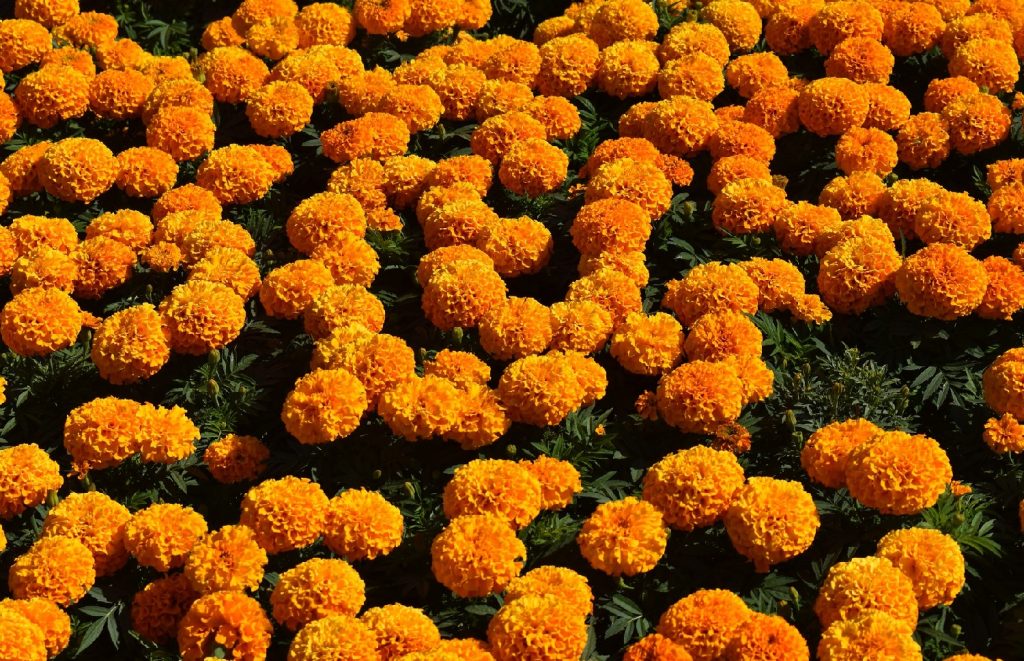
Plants you should never grow with bok choy
While fairly unassuming, there are some fruits and vegetables that won’t fare well as bok choy neighbors – avoid growing any of the below alongside these brassicas.
Strawberries
Strawberries and bok choy are mutually destructive – in the sense that they are chemically imbalanced. They inhibit each other’s growth when placed in the same soil – meaning you can nearly always expect a weaker yield from both plants when using a common medium. Try and grow strawberries in a separate pot where you can, as the fruit may still attract wasps, which are highly useful in protecting bok choy.
Other brassicas
Different species of brassicas generally make poor bedfellows, not only thanks to the root space competition but also thanks to shared pests. Specimens such as cabbage and broccoli may encourage smaller yields when grown alongside bok choy unless you grow a strong perimeter of herbs and/or alliums. Otherwise, you can expect an onslaught of pests that will eat through your bok choy (and the rest).
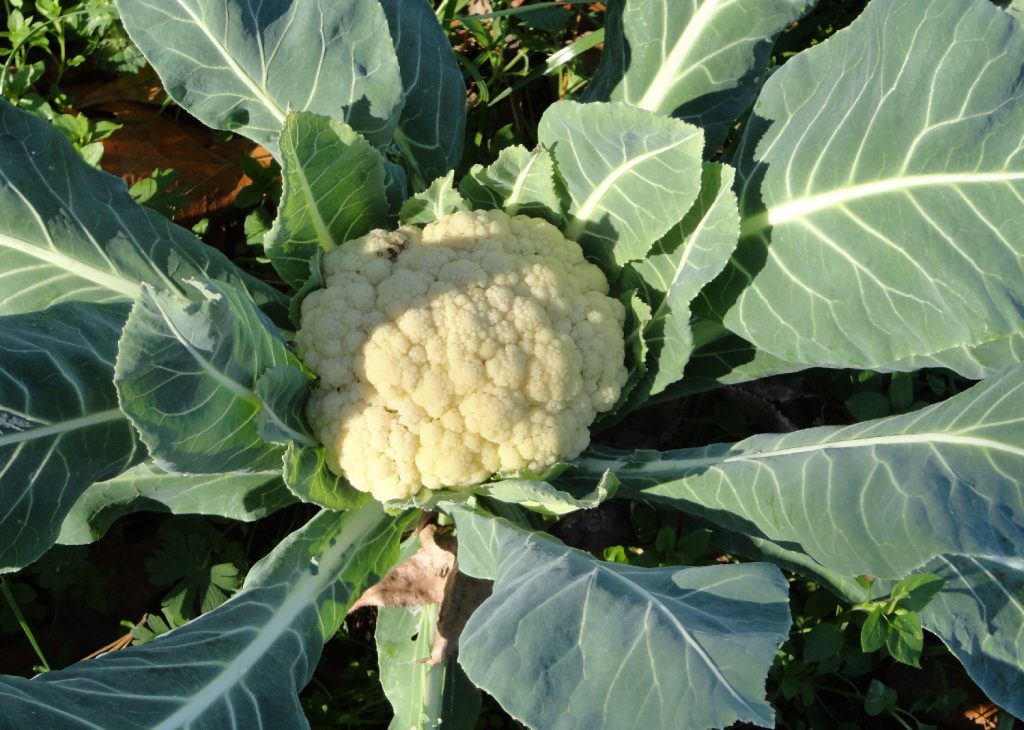
Tomatoes
Nightshade plants such as tomatoes typically prove fatal to bok choy when planted alongside. This is largely thanks to verticillium wilt – a soil fungus that will hit bok choy and other brassicas hard. It may be worth growing the ‘garden’s doctor’, chamomile, alongside to prevent disease – but even that may not be enough. Be sure to avoid growing potatoes, peppers, and eggplant, too – they’re all nightshades.
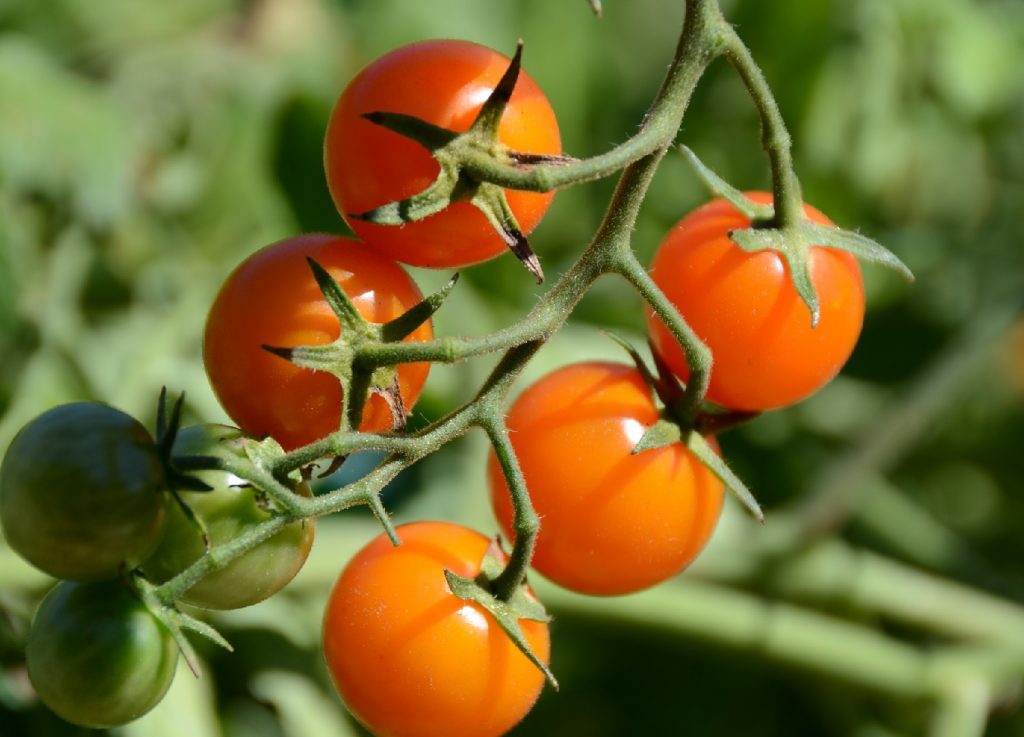
Is it worth growing bok choy companion plants?
Growing companion plants with bok choy is a must if you want to harvest a strong, healthy yield of vegetables this coming season. While this brassica will fare well on its own in many gardens, if you infamously struggle with aphids and cabbage worms, you will need an extra line of defense.
Companion planting with bok choy can lead to bigger, tastier crops – and handily, there are more than a few species of plant and herb you can mix to mutual benefit. Avoid planting directly with mint and other brassicas – and it’s never worth the fungal risk of introducing nightshades to the mix.
